
Muscat: The Jewel of the Arabian Peninsula
Muscat, the captivating capital of Oman, is a city where tradition meets modernity. Nestled between rugged mountains and the serene Arabian Sea, Muscat offers a blend of old-world charm and contemporary elegance. The city's architecture is a testament to its rich heritage, with grand mosques, ancient forts, and traditional souks standing alongside modern skyscrapers and luxury hotels. The Sultan Qaboos Grand Mosque is a must-visit, showcasing stunning Islamic architecture and intricate designs. For history enthusiasts, the Mutrah Corniche and the Mutrah Souk provide a glimpse into the city's vibrant past. Wander through the narrow alleys, filled with the aroma of spices and the shimmer of silverware, and experience the soul of Omani culture. Nature lovers will be enchanted by the breathtaking landscapes surrounding Muscat. Enjoy a relaxing day at Qurum Beach or take a boat trip to the nearby Daymaniyat Islands, a paradise for snorkelers and divers. The city's coastline offers pristine waters and abundant marine life. For an adventurous day trip, explore the nearby Wadi Shab or hike the rugged trails of the Al Hajar Mountains. Muscat's culinary scene is a delightful fusion of flavors. From traditional Omani dishes to international cuisines, the city caters to all tastes. Don't miss trying the local delicacies like shuwa (slow-cooked lamb) and halwa (a sweet, sticky dessert). Whether you're exploring the city's historical sites, enjoying its natural beauty, or indulging in its culinary delights, Muscat promises an unforgettable experience.
Local tips in Muscat
- Dress modestly, especially when visiting religious sites. Lightweight, breathable clothing is recommended due to the hot climate.
- Visit the Mutrah Souk in the evening for the best shopping experience and to avoid the midday heat.
- Rent a car if you plan to explore beyond the city, as public transportation options are limited.
- Take a dhow cruise along the coast for a unique perspective of Muscat's stunning landscapes.
- Stay hydrated and use sunscreen, as the sun can be very intense, especially during the summer months.
Neighbourhoods in Muscat
Muscat: The Jewel of the Arabian Peninsula
Muscat, the captivating capital of Oman, is a city where tradition meets modernity. Nestled between rugged mountains and the serene Arabian Sea, Muscat offers a blend of old-world charm and contemporary elegance. The city's architecture is a testament to its rich heritage, with grand mosques, ancient forts, and traditional souks standing alongside modern skyscrapers and luxury hotels. The Sultan Qaboos Grand Mosque is a must-visit, showcasing stunning Islamic architecture and intricate designs. For history enthusiasts, the Mutrah Corniche and the Mutrah Souk provide a glimpse into the city's vibrant past. Wander through the narrow alleys, filled with the aroma of spices and the shimmer of silverware, and experience the soul of Omani culture. Nature lovers will be enchanted by the breathtaking landscapes surrounding Muscat. Enjoy a relaxing day at Qurum Beach or take a boat trip to the nearby Daymaniyat Islands, a paradise for snorkelers and divers. The city's coastline offers pristine waters and abundant marine life. For an adventurous day trip, explore the nearby Wadi Shab or hike the rugged trails of the Al Hajar Mountains. Muscat's culinary scene is a delightful fusion of flavors. From traditional Omani dishes to international cuisines, the city caters to all tastes. Don't miss trying the local delicacies like shuwa (slow-cooked lamb) and halwa (a sweet, sticky dessert). Whether you're exploring the city's historical sites, enjoying its natural beauty, or indulging in its culinary delights, Muscat promises an unforgettable experience.
When is the best time to go to Muscat?
Iconic landmarks you can’t miss
Mutrah Souq
Explore the vibrant atmosphere of Mutrah Souq in Muscat, a treasure trove of Omani culture, crafts, and culinary delights.
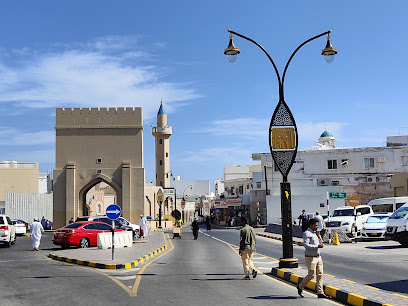
Sultan Qaboos Grand Mosque
Explore the breathtaking beauty and cultural significance of the Sultan Qaboos Grand Mosque in Muscat, a must-visit landmark for all travelers.
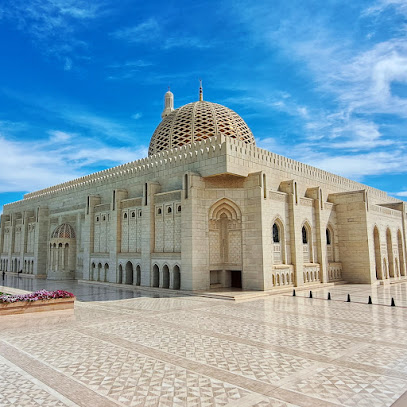
Qurum Natural Park
Explore the lush landscapes and recreational delights of Qurum Natural Park, a tranquil escape in Muscat's vibrant heart.
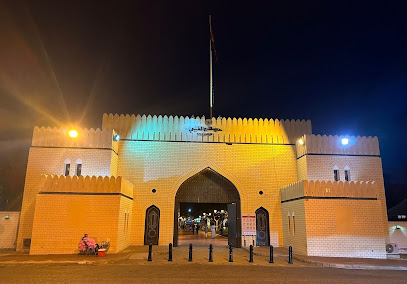
Royal Opera House Muscat
Discover the Royal Opera House Muscat, a stunning architectural gem showcasing Oman's vibrant cultural heritage through world-class performances and artistic exhibitions.

Al Sahwa Garden
Experience the serene beauty of Al Sahwa Garden, a picturesque park in Seeb, Oman, ideal for relaxation and family fun amidst lush landscapes.
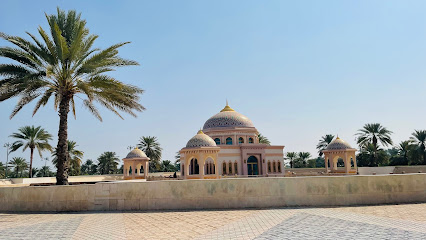
Al Alam Palace
Discover the grandeur of Al Alam Palace, the ceremonial palace of the Sultan in Muscat, showcasing stunning architecture and rich Omani heritage.
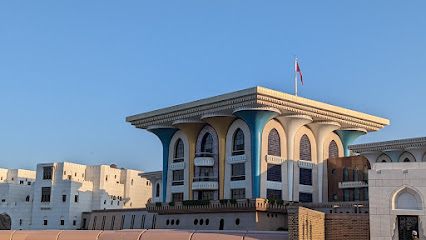
Riyam Park حديقة ريام
Discover tranquility and beauty at Riyam Park, a lush urban oasis in Muscat, Oman, perfect for relaxation and family fun.
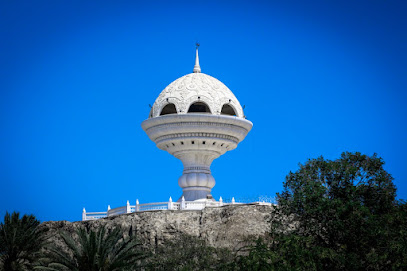
Mutrah Fort
Discover the historical grandeur and breathtaking views of Mutrah Fort, a hallmark of Oman's rich heritage and architectural beauty.
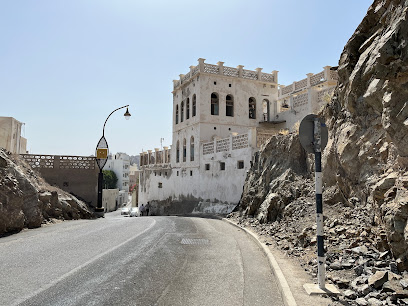
Bait Al Zubair Museum
Explore the rich heritage of Oman at Bait Al Zubair Museum in Muscat, where history, culture, and tradition come to life.
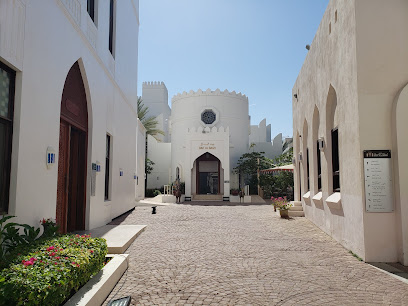
Burj Al Sahwa
Explore the breathtaking Burj Al Sahwa in Muscat, a stunning blend of modern architecture and Omani culture, perfect for unforgettable travel experiences.
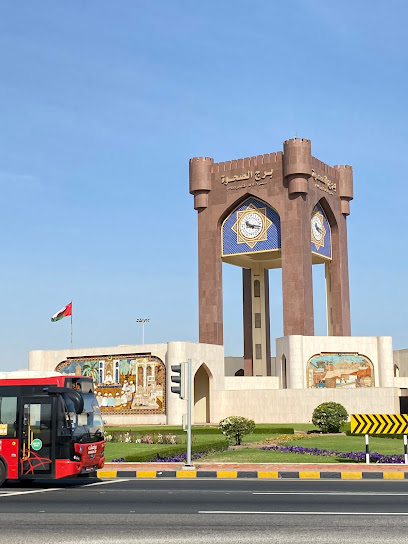
Al Mirani Fort
Discover the majestic Al Mirani Fort in Muscat, a historical gem that offers breathtaking views and a deep dive into Oman's rich heritage.
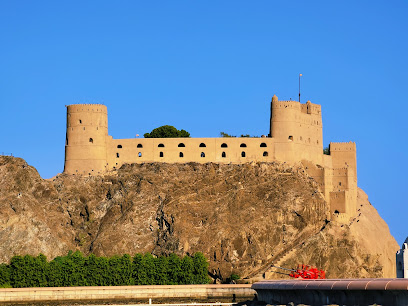
Azaiba Public Park
Discover the natural beauty of Azaiba Public Park in Muscat, a perfect family-friendly escape with lush gardens and tranquil pathways.
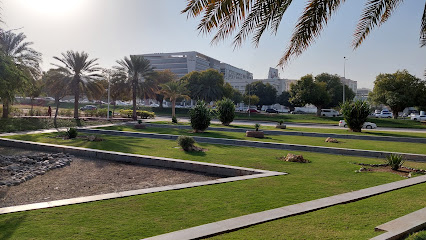
Al-Bustan Beach
Discover the tranquil beauty of Al-Bustan Beach in Muscat, where golden sands and crystal-clear waters create the perfect coastal getaway.
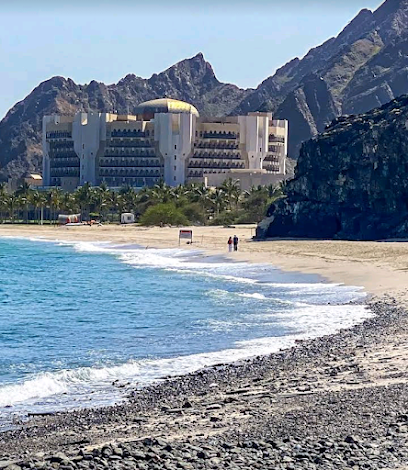
Muscat Gate Museum
Explore the intriguing past of Oman at Muscat Gate Museum, a cultural gem in the heart of Muscat, showcasing rich history and heritage.
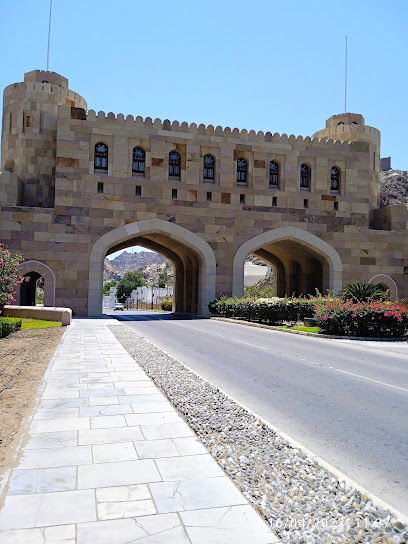
Ruwi Clock Tower
Discover the Ruwi Clock Tower, a captivating landmark in Muscat, reflecting the city's heritage and vibrant culture amidst bustling streets and local attractions.
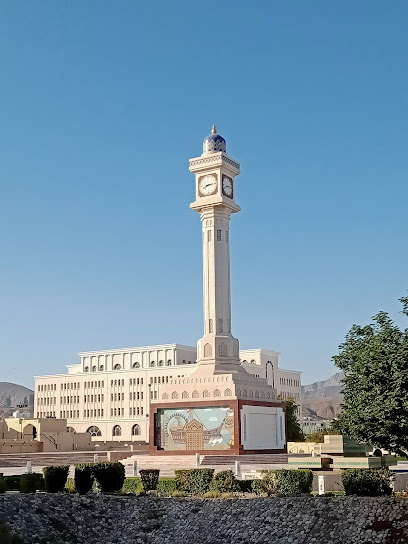
Unmissable attractions to see
Sultan Qaboos Grand Mosque
Experience the breathtaking beauty and cultural significance of the Sultan Qaboos Grand Mosque, a must-visit landmark in Muscat, Oman.
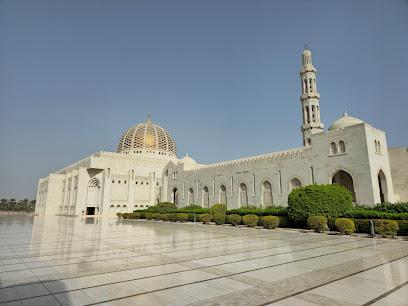
Qurum Natural Park
Discover the tranquility of Qurum Natural Park, a lush green haven in Muscat perfect for relaxation, picnics, and nature walks.
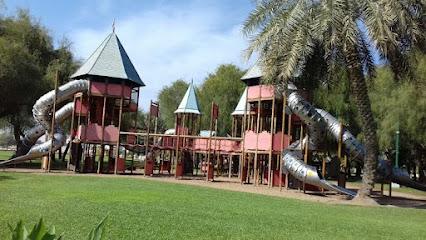
Royal Opera House Muscat
Experience the cultural essence of Oman at the Royal Opera House Muscat, a premier destination for world-class performances and stunning architecture.
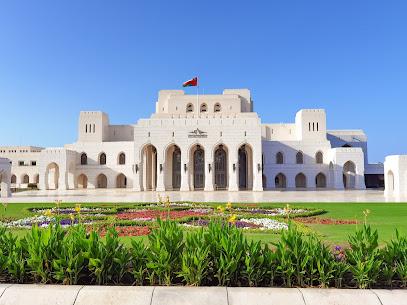
Ghubrah Beach Park
Explore Ghubrah Beach Park, a serene retreat in Muscat with picturesque beaches, lush greenery, and vibrant recreational activities for all ages.
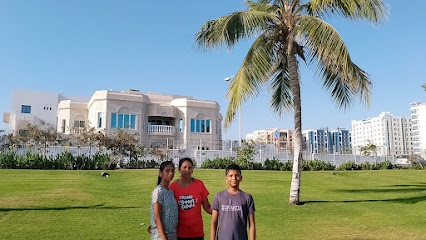
Al Alam Palace
Explore the breathtaking Al Alam Palace in Muscat, a stunning representation of Omani heritage, surrounded by rich history and beautiful landscapes.
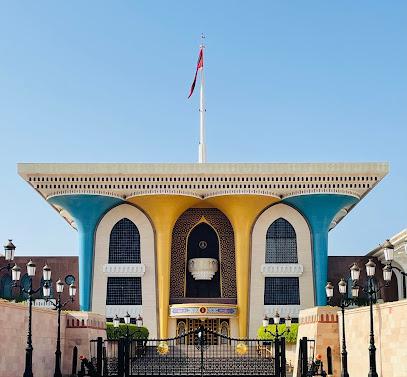
Riyam Park حديقة ريام
Discover the serene beauty of Riyam Park in Muscat, a perfect blend of nature and culture with stunning views and vibrant landscapes.
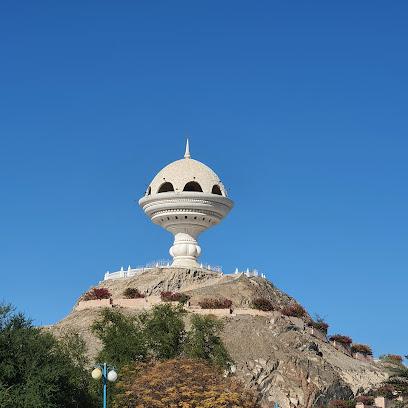
Riyam Park حديقة ريام
Discover the tranquility of Riyam Park in Muscat, where lush greenery and scenic views offer a perfect escape for relaxation and family fun.
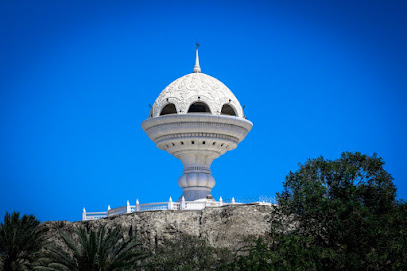
Mutrah Corniche
Discover the picturesque Mutrah Corniche in Muscat, Oman, where stunning sea views meet rich cultural experiences along a vibrant waterfront promenade.
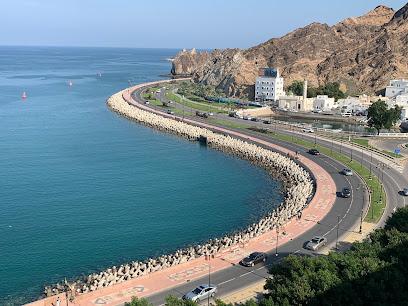
National Museum of Oman
Explore the rich history and vibrant culture of Oman at the National Museum, a treasure trove of artifacts and stories waiting to be discovered.
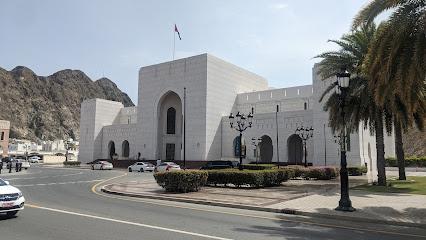
Sri Krishna Temple, Muscat, Oman
Explore the serene and vibrant Sri Krishna Temple in Muscat, a cultural gem reflecting the rich Hindu traditions of Oman.
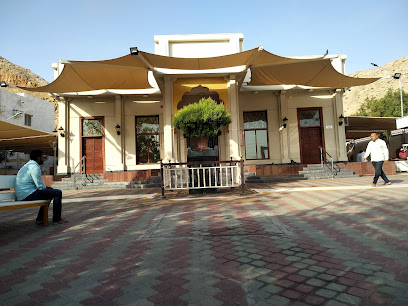
Mutrah Fort
Explore Mutrah Fort, a magnificent fortress in Muscat, Oman, offering rich history, stunning views, and a glimpse into the vibrant local culture.
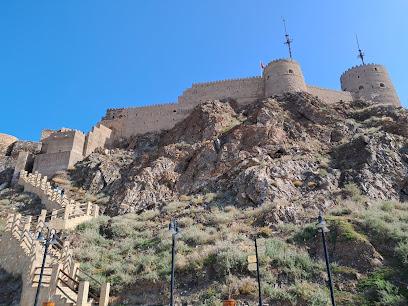
Azaiba Beach Park
Discover the natural beauty and tranquility of Azaiba Beach Park, a perfect spot for relaxation and family fun in Muscat, Oman.
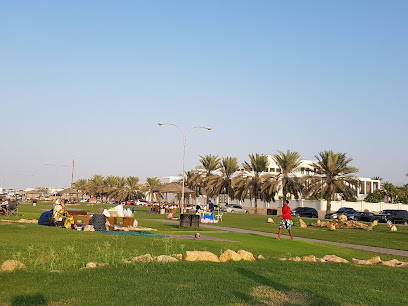
Oman Aquarium
Explore the breathtaking marine life at Oman Aquarium in Seeb, an educational and thrilling experience for visitors of all ages.
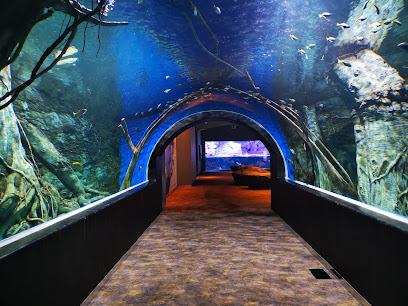
Ghubrah Lake Park
Explore the tranquil beauty of Ghubrah Lake Park in Muscat, where stunning landscapes and serene waters create a perfect escape for tourists.
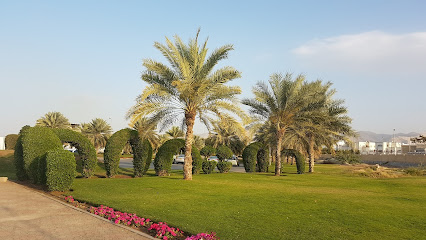
Bait Al Zubair Museum
Explore Oman's rich cultural heritage at Bait Al Zubair Museum, a treasure trove of history and tradition in the heart of Muscat.
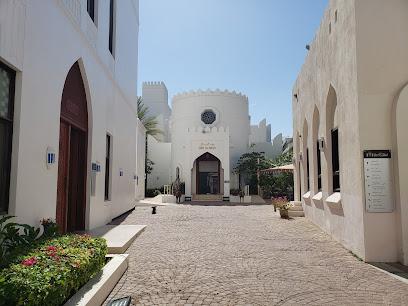
Essential places to dine
Turkish House Restaurant
Savor authentic Turkish cuisine in Muscat's vibrant atmosphere with a diverse menu featuring traditional favorites.
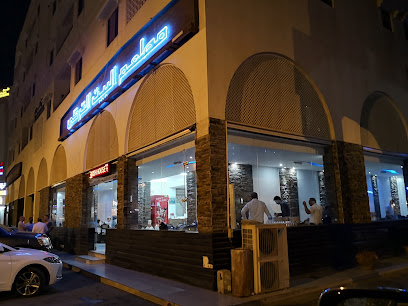
The Cave
Experience culinary excellence at The Cave in Muscat, where Asian and Mediterranean flavors meet in an extraordinary dining environment.
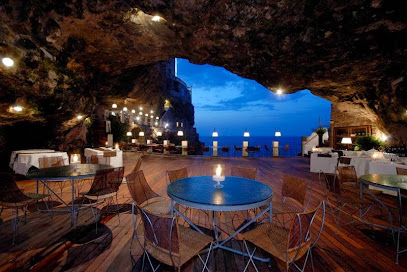
Begum's Restaurant Al Khuwair
Experience authentic Indian cuisine at Begum's Restaurant Al Khuwair - where every dish tells a story of tradition and flavor.
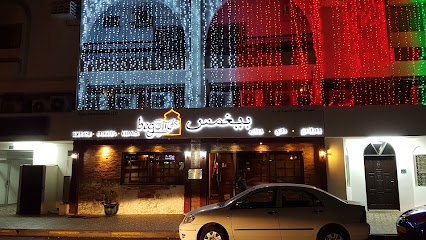
Lahab Kitchen Restaurant
Experience authentic Omani cuisine at Lahab Kitchen in Muscat – where flavors meet tradition in a warm and inviting atmosphere.
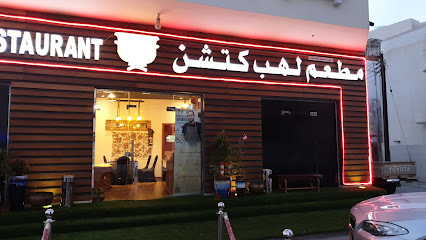
Bait Al Luban Omani Restaurant
Experience the essence of Oman through its vibrant cuisine at Bait Al Luban - where every meal tells a story.
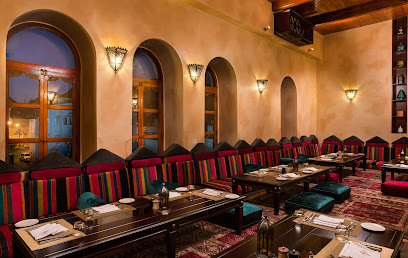
Ramssa Omani Restaurant
Discover authentic Omani cuisine at Ramssa Omani Restaurant—where rich flavors meet warm hospitality in the heart of Muscat.
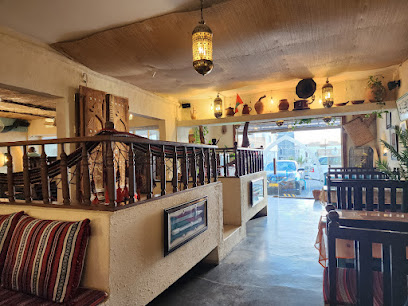
1947 Indian Restaurant - Ghubra
Savor authentic Indian cuisine at 1947 Indian Restaurant - Ghubra in Muscat; where tradition meets taste.
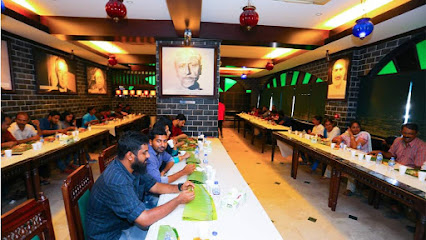
Woodlands Restaurant مطعم ودلاندز
Experience authentic Indian flavors at Woodlands Restaurant in Muscat—an unforgettable culinary adventure awaits.
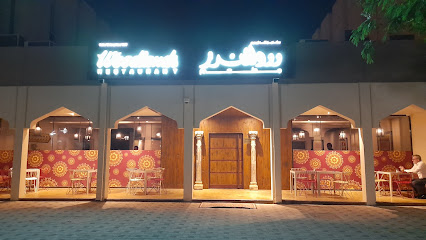
Farzi Cafe Oman
Discover modern Indian cuisine at Farzi Cafe Oman – where tradition meets innovation on Muscat's beautiful waterfront.
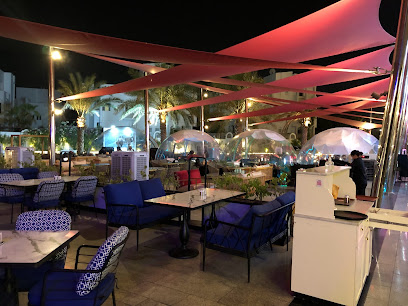
The Jungle Restaurant
Experience exotic dining at The Jungle Restaurant in Muscat - where culinary delights meet enchanting ambience.
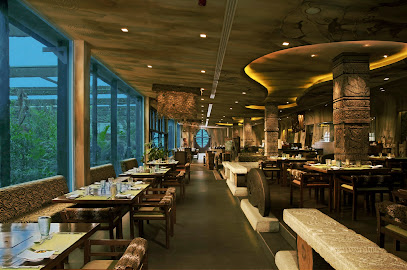
NANA's Restaurant
Discover NANA's Restaurant in Muscat for an unforgettable blend of Omani flavors and international cuisine in an elegant setting.
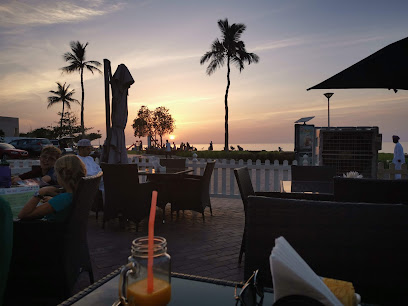
Meerath Famous Restaurant
Discover authentic Pakistani and Indian barbecue delights at Meerath Famous Restaurant in Muscat - a culinary treasure waiting to be explored.
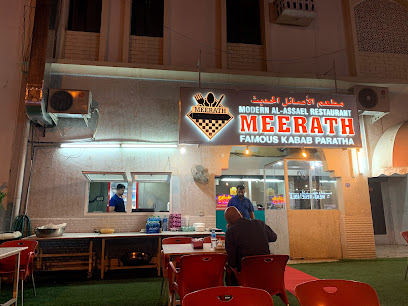
Mumtaz Mahal Restaurant
Experience the exquisite flavors of India at Mumtaz Mahal Restaurant in Muscat – where tradition meets elegance.
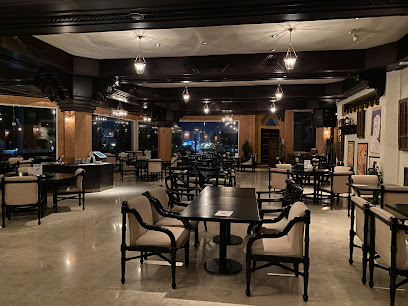
Shakespeare and Co.
Experience culinary bliss at Shakespeare and Co., Muscat's charming eatery offering delicious dishes, delightful desserts, and a unique ambiance.
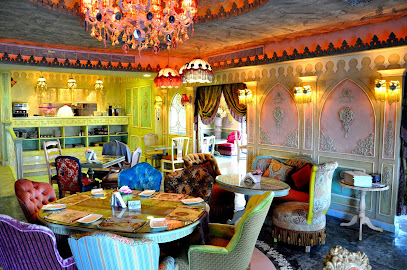
Al Luban Land Restaurant
Experience authentic Omani cuisine at Al Luban Land Restaurant in Muscat - where tradition meets flavor in every dish.
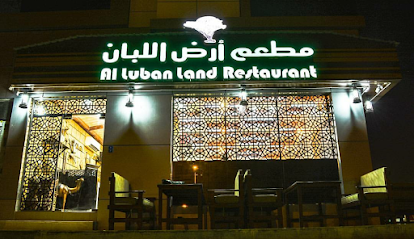
Markets, malls and hidden boutiques
Mutrah Souq
Immerse yourself in the vibrant culture of Oman at Mutrah Souq, where tradition meets modernity in a lively marketplace.
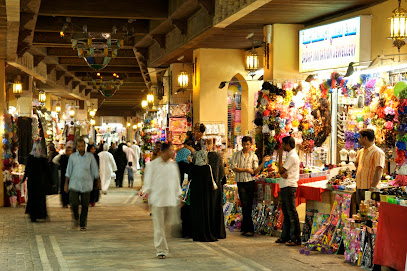
Oman Avenues Mall
Experience shopping, dining, and entertainment all in one place at Oman Avenues Mall, the ultimate shopping destination in Muscat.
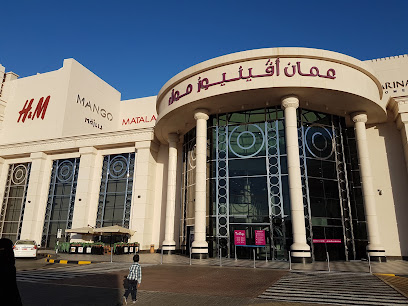
City Centre Muscat
Explore City Centre Muscat, your ultimate shopping and dining destination in Oman, blending modern elegance with local charm.
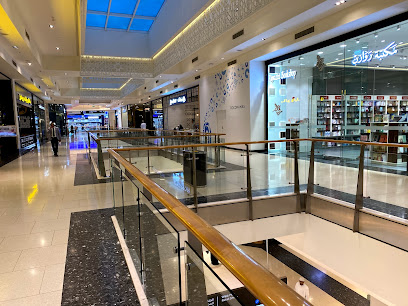
LuLu Hypermarket - Bousher
Explore LuLu Hypermarket in Bousher for an authentic Omani shopping experience with diverse products and local specialties.
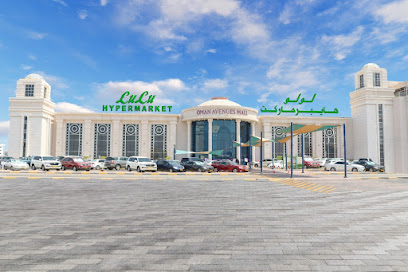
Muscat Grand Mall
Discover a world of shopping and entertainment at Muscat Grand Mall, a premier destination in the heart of Oman.
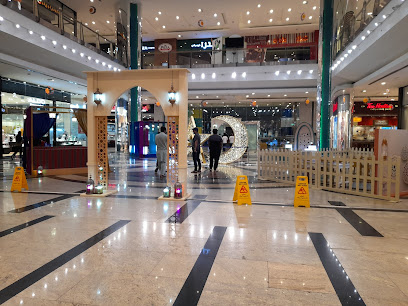
Mall of Muscat
Explore the Mall of Muscat: A premier shopping and entertainment destination blending Omani culture with modern leisure.
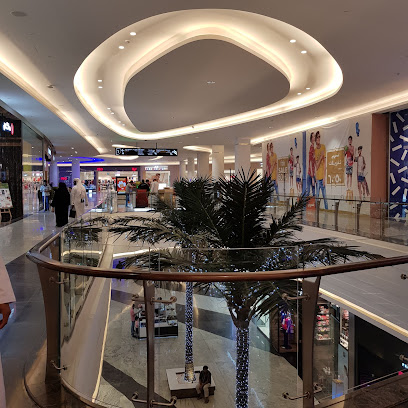
Mall of Oman
Explore the Mall of Oman: A premier shopping and entertainment destination in Muscat with diverse dining options and family-friendly activities.
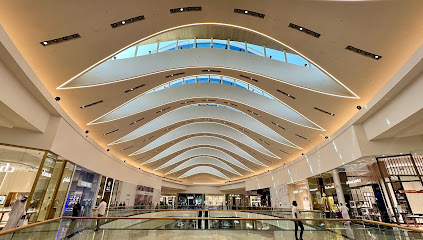
City Centre Qurum
Explore City Centre Qurum: Muscat's premier shopping destination with over 60 stores, diverse dining options, and a vibrant atmosphere for all ages.
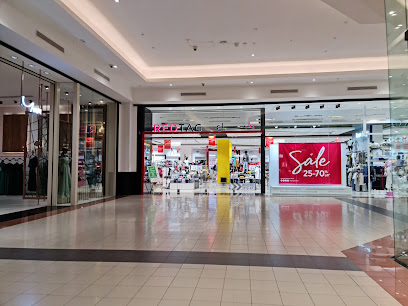
Al Araimi Boulevard
Experience the vibrant shopping and dining at Al Araimi Boulevard, Muscat's ultimate destination for retail therapy and entertainment.
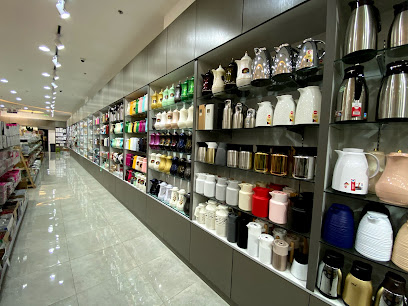
Markaz Al Bahja
Explore Markaz Al Bahja in Seeb, a vibrant shopping mall offering diverse retail, dining, and entertainment options perfect for tourists.
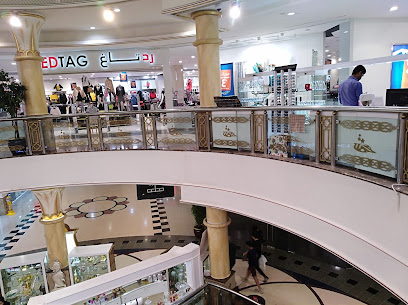
Oasis Mall
Experience the perfect blend of shopping and culture at Oasis Mall in Al Khuwair, where global brands meet local charm.
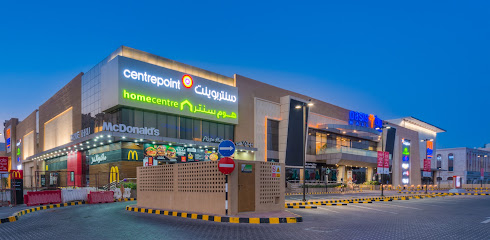
Dragon Gift Center
Explore the vibrant Dragon Gift Center in Muscat, where shopping meets Omani culture, offering unique treasures and local crafts for every traveler.
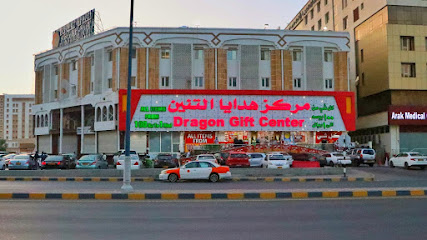
The Walk
Experience the vibrant blend of shopping, dining, and entertainment at The Walk in Muscat, a top destination for tourists in Oman.
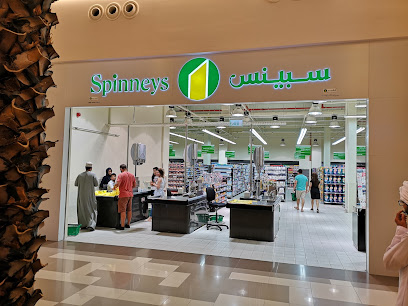
Sabco Shopping Centre
Discover shopping, dining, and entertainment at Sabco Shopping Centre, a vibrant hub in Muscat blending local culture and modern amenities.
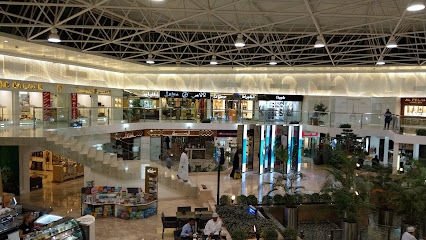
Bustan Gift Market
Explore the Bustan Gift Market in Muscat for a unique shopping experience filled with Omani culture, handcrafted treasures, and vibrant local artistry.
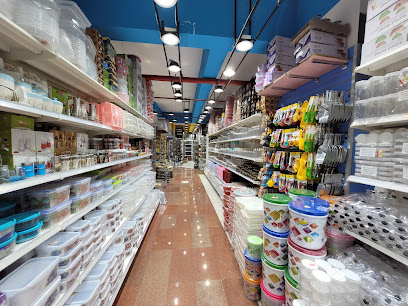
Essential bars & hidden hideouts
Huqqa
Discover Huqqa in Muscat: A vibrant restaurant offering Halal cuisine, exquisite hookah, and a warm, family-friendly atmosphere.
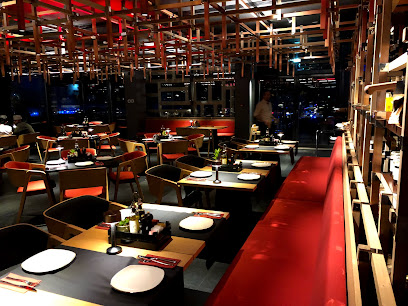
Rock Bottom Cafe Muscat
Experience the vibrant energy and delicious American cuisine at Rock Bottom Cafe Muscat, a lively grill and disco club that offers unforgettable nights.
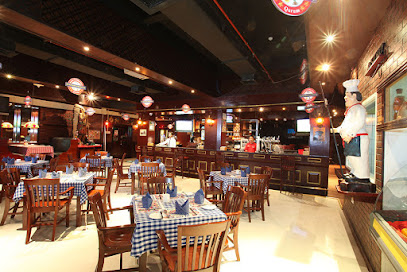
Zale Beach Club & Lounge
Discover the tranquility of Zale Beach Club & Lounge, a luxurious escape in Muscat with exquisite cuisine and stunning sea views.
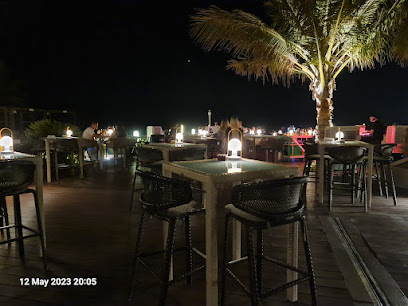
Duke's
Experience the vibrant ambiance and exquisite flavors at Duke's, Muscat's premier gastropub within the Crowne Plaza Hotel.
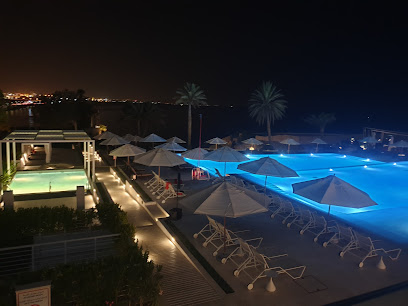
Bombay Club
Discover the vibrant Bombay Club in Muscat, where lively atmosphere meets a fantastic selection of drinks, perfect for unwinding and socializing.
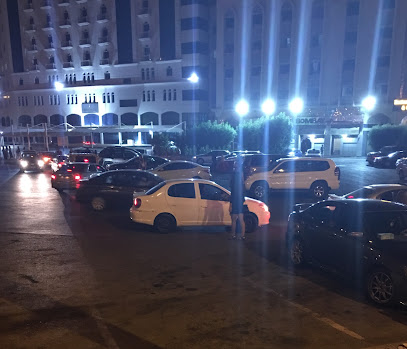
Sama Terrazza Rooftop Lounge
Experience breathtaking views and delightful drinks at Sama Terrazza Rooftop Lounge, Muscat's premier bar destination.
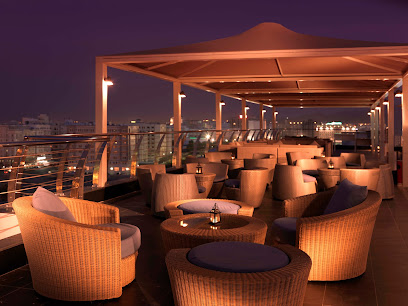
O'Malley's Irish Pub
Discover the lively atmosphere of O'Malley's Irish Pub in Muscat, where traditional cuisine meets vibrant entertainment in an inviting setting.
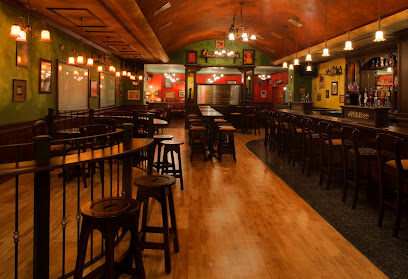
Habana Sports Bar - Your Home of Sports
Discover Habana Sports Bar at Grand Hyatt Muscat - the ultimate destination for sports fans and casual diners alike amidst a vibrant atmosphere.
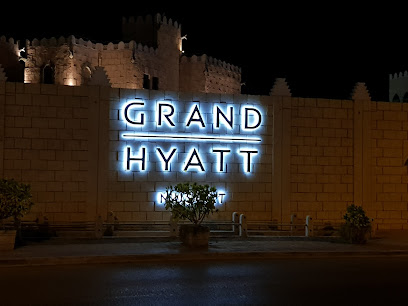
Al Ghazal Pub at InterContinental Muscat
Discover the lively Al Ghazal Pub at InterContinental Muscat, the ultimate sports bar for food and sports enthusiasts in Oman.
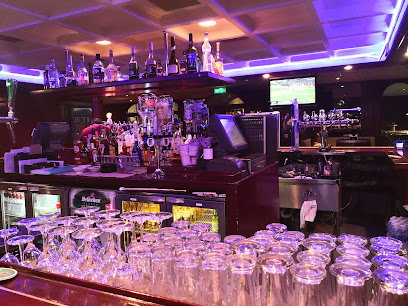
Club Safari
Discover Club Safari in Muscat, a lively bar at the Grand Hyatt offering exotic cocktails and a chic atmosphere perfect for a night out.
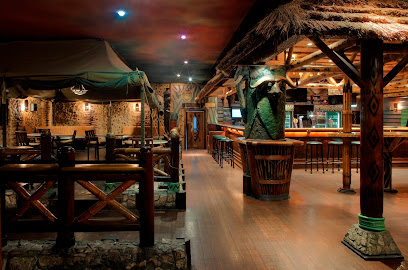
THE VAULT
Experience The Vault, Muscat's premier bar, known for its exquisite cocktails, vibrant atmosphere, and luxurious setting within the Radisson Collection Hotel.
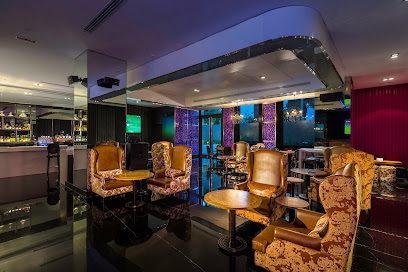
Cohi Bar
Experience the vibrant nightlife of Muscat at Cohi Bar, where delicious food, refreshing drinks, and live entertainment await you.
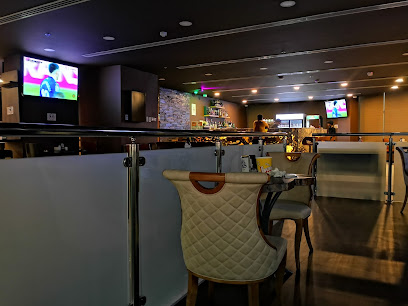
Tickerdaze
Experience the thrill of live sports and delicious food at Tickerdaze, the ultimate sports bar in Muscat International Airport.
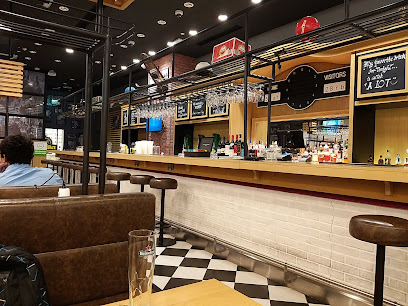
John Barry
Experience the elegance of John Barry Lounge in Muscat, where sophistication meets relaxation amidst stunning Gulf views.
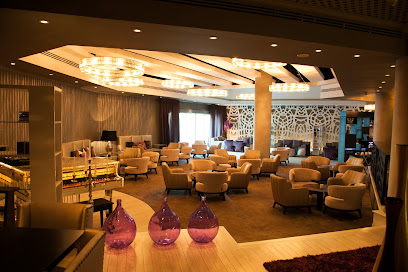
Churchill Pub
Discover the lively Churchill Pub in Muscat for a unique nightlife experience with great drinks and a friendly environment.
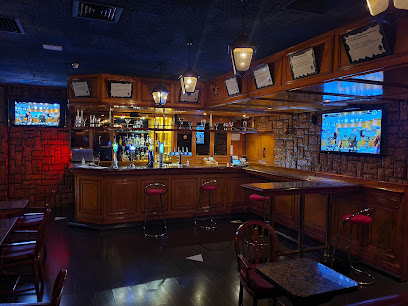
Local Phrases
-
- Helloمرحبا
[marhaban] - Goodbyeوداعا
[wadaeana] - Yesنعم
[naam] - Noلا
[laa] - Please/You're welcomeمن فضلك
[min fadlik] - Thank youشكرا
[shukran] - Excuse me/Sorryعذرا
[aadhran] - How are you?كيف حالك؟
[kayfa haluk?] - Fine. And you?بخير. وأنت؟
[bikhayr. wa ant?] - Do you speak English?هل تتحدث الإنجليزية؟
[hal tatahadath al'inglizia?] - I don't understandلا أفهم
[la afham]
- Helloمرحبا
-
- I'd like to see the menu, pleaseأريد أن أرى القائمة، من فضلك
[uridu an ara alqaimah, min fadlik] - I don't eat meatأنا لا آكل اللحم
[ana la akul allahm] - Cheers!في صحتك!
[fi sahtik!] - I would like to pay, pleaseأريد أن أدفع، من فضلك
[uridu an adfae, min fadlik]
- I'd like to see the menu, pleaseأريد أن أرى القائمة، من فضلك
-
- Help!النجدة!
[alnajdah!] - Go away!انصرف!
[insarif!] - Call the Police!اتصل بالشرطة!
[iatisil bialsuratu!] - Call a doctor!اتصل بالطبيب!
[iatisil bialtabib!] - I'm lostلقد ضللت الطريق
[laqad dalalt altariq] - I'm illأنا مريض
[ana mareed]
- Help!النجدة!
-
- I'd like to buy...أريد أن أشتري...
[uridu an ashtari...] - I'm just lookingأنا فقط أتطلع
[ana faqat atatallaa] - How much is it?كم سعره؟
[kam saeruh?] - That's too expensiveهذا غالي جدا
[hatha ghali jiddan] - Can you lower the price?هل يمكنك خفض السعر؟
[hal yumkinuka khafd alsaeer?]
- I'd like to buy...أريد أن أشتري...
-
- What time is it?كم الساعة؟
[kam alsaaah?] - It's one o'clockالساعة الواحدة
[alsaaah alwahidah] - Half past (10)العاشرة والنصف
[alashirah walnusf] - Morningصباح
[sabah] - Afternoonبعد الظهر
[baad althuhr] - Eveningمساء
[masa] - Yesterdayأمس
[ams] - Todayاليوم
[alyawm] - Tomorrowغدا
[ghadan] - 1واحد
[wahid] - 2اثنين
[ithnayn] - 3ثلاثة
[thalatha] - 4أربعة
[arbaah] - 5خمسة
[khamsah] - 6ستة
[sittah] - 7سبعة
[sabah] - 8ثمانية
[thamania] - 9تسعة
[tisah] - 10عشرة
[asharah]
- What time is it?كم الساعة؟
-
- Where's a/the...?أين...
[ayna...] - What's the address?ما هو العنوان؟
[ma huwa alaanwan?] - Can you show me (on the map)?هل يمكنك أن تريني (على الخريطة)؟
[hal yumkinuka an tureeni (ala alkharitah)?] - When's the next (bus)?متى يأتي الحافلة التالية؟
[mata yati alhafilat altaliat?] - A ticket (to ....)تذكرة (إلى ....)
[tazkirah (ila ....)]
- Where's a/the...?أين...
History of Muscat
-
Muscat's history dates back to antiquity, with evidence of habitation as early as 6,000 years ago. The city has long been a critical port due to its strategic location along ancient maritime trade routes. Known for its seafaring traditions, Muscat connected the Arabian Peninsula with the civilizations of the Indus Valley, Mesopotamia, and beyond. This rich maritime heritage is reflected in the Omani culture, where traditional dhow building and navigation techniques have been passed down through generations.
-
In the 7th century, Muscat embraced Islam, transforming the city's cultural and societal landscapes. The spread of Islam brought new architectural styles, educational institutions, and governance structures. Mosques began to dot the city's landscape, and Muscat became an essential center for Islamic learning and scholarship. This period also saw the beginning of Oman's association with the powerful Umayyad and Abbasid Caliphates.
-
In the early 16th century, the Portuguese, led by Afonso de Albuquerque, captured Muscat, establishing it as a key base for their Indian Ocean empire. The Portuguese constructed several forts, including the iconic Al Jalali and Al Mirani forts, which still stand today as reminders of this turbulent period. The occupation lasted until 1650, when the Omanis, under the leadership of Imam Sultan bin Saif, successfully expelled the Portuguese forces.
-
Following the expulsion of the Portuguese, the Ya'aruba dynasty rose to prominence, ushering in a golden age for Muscat and Oman. The Ya'aruba rulers focused on unifying the country and expanding their maritime empire. They established a formidable fleet, reclaiming Oman's dominance over the Indian Ocean trade routes. This period saw a flourishing of architecture, with the construction of grand mosques, palaces, and fortifications across Muscat.
-
In 1744, Ahmed bin Sa'id al-Busaidi founded the Al Said dynasty, which continues to rule Oman today. Under the Al Said rulers, Muscat solidified its position as the political and economic heart of the nation. The city saw significant urban development, with the construction of new markets, residential areas, and administrative buildings. The Al Said era also marked the beginning of diplomatic relations with European powers, further enhancing Muscat's global significance.
-
The early 20th century was marked by internal strife between the coastal Sultanate of Muscat and the interior Imamate of Oman. This conflict was resolved with the Treaty of Seeb in 1920, brokered by the British, which granted autonomy to the interior while recognizing the Sultan's authority over the coast. This treaty laid the groundwork for the modern state of Oman, with Muscat continuing to serve as its capital.
-
The modern history of Muscat began with the ascension of Sultan Qaboos bin Said in 1970. His reign initiated a period of rapid modernization and development, known as the Omani Renaissance. Muscat transformed into a bustling metropolis, with extensive infrastructure projects, educational reforms, and healthcare improvements. The city also embraced cultural preservation, maintaining its historical sites while integrating contemporary urban planning. Today, Muscat stands as a vibrant blend of tradition and modernity, reflecting Oman's rich history and dynamic future.
Muscat Essentials
-
Muscat is served by Muscat International Airport (MCT), which is located about 32 kilometers from the city center. The airport is well-connected with major cities around the world. From the airport, you can take a taxi, rent a car, or use the airport shuttle services to reach your accommodation in the city. Alternatively, if you are traveling from within Oman, you can use intercity buses or drive to Muscat.
-
Muscat has a range of transportation options. Taxis are widely available and can be hailed on the street or booked via apps like OTaxi. Public buses operated by Mwasalat cover major routes and are an economical way to get around. Renting a car is also a popular option for tourists who wish to explore the city and its surroundings at their own pace. Be aware that driving is on the right side of the road, and traffic can be heavy during peak hours.
-
The official currency of Oman is the Omani Rial (OMR). Credit and debit cards are widely accepted in hotels, restaurants, and larger shops. However, it is advisable to carry some cash for smaller establishments and markets. ATMs are plentiful throughout Muscat, and currency exchange services are available at the airport, banks, and exchange bureaus.
-
Muscat is generally a safe city for tourists. However, like any urban area, it is wise to take standard precautions. Avoid walking alone late at night in unfamiliar areas and be cautious with your belongings in crowded places. There are no specific areas known for high crime rates targeting tourists, but staying vigilant is always recommended.
-
In case of emergency, dial 9999 for police, fire, or medical assistance. Major hospitals in Muscat include the Royal Hospital, Sultan Qaboos University Hospital, and Khoula Hospital. Pharmacies are widespread and can provide over-the-counter medications for minor health issues. It is advisable to have travel insurance that covers medical emergencies.
-
Fashion: Do dress modestly, especially in public places. Avoid wearing revealing clothing. Women should cover their shoulders and knees, and men should avoid wearing shorts in public. Religion: Do respect local customs and traditions. Always dress modestly when visiting mosques, and women should cover their hair. Public Transport: Do be respectful and considerate of other passengers. Avoid eating and drinking on public transport. Greetings: Do greet people with a polite 'As-salamu alaykum' (peace be upon you) and respond with 'Wa alaykum as-salam' (and upon you be peace). A handshake is common among men, but men should wait for a woman to extend her hand first. Eating & Drinking: Do try local delicacies and accept food offerings graciously. Don't eat or drink in public during daylight hours during Ramadan, as it is considered disrespectful.
-
To experience Muscat like a local, visit the Mutrah Souq, a traditional market where you can buy spices, textiles, and handicrafts. Take a stroll along the Mutrah Corniche for stunning views of the harbor and the old town. Engage with locals, as they are known for their hospitality and friendliness. Don't miss visiting the Sultan Qaboos Grand Mosque, one of the largest and most beautiful mosques in the world. For a unique experience, explore the wadis (valleys) and beaches around Muscat, such as Wadi Shab and Qurum Beach.
Nearby Cities to Muscat
-
Things To Do in Rustaq
-
Things To Do in Nizwa
-
Things To Do in Bahla
-
Things To Do in Sur
-
Things To Do in Sohar
-
Things To Do in Ibri
-
Things To Do in Fujairah
-
Things To Do in Al Ain
-
Things To Do in Khor Fakkan
-
Things To Do in Dibba Al-Fujairah
-
Things To Do in Ras Al Khaimah
-
Things To Do in Ajman
-
Things To Do in Sharjah
-
Things To Do in Khasab
-
Things To Do in Umm Al Quwain


















